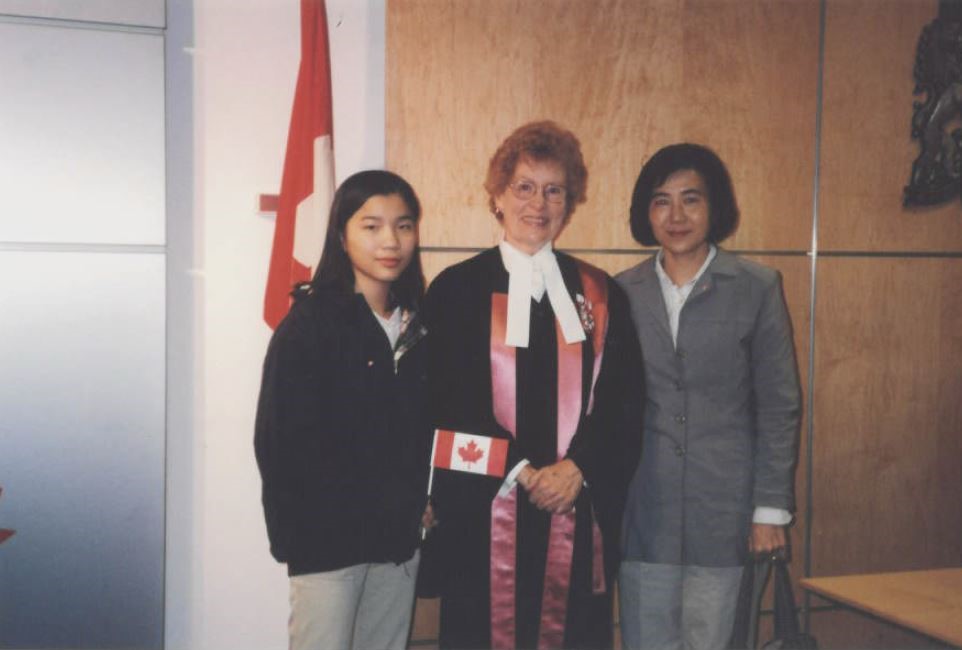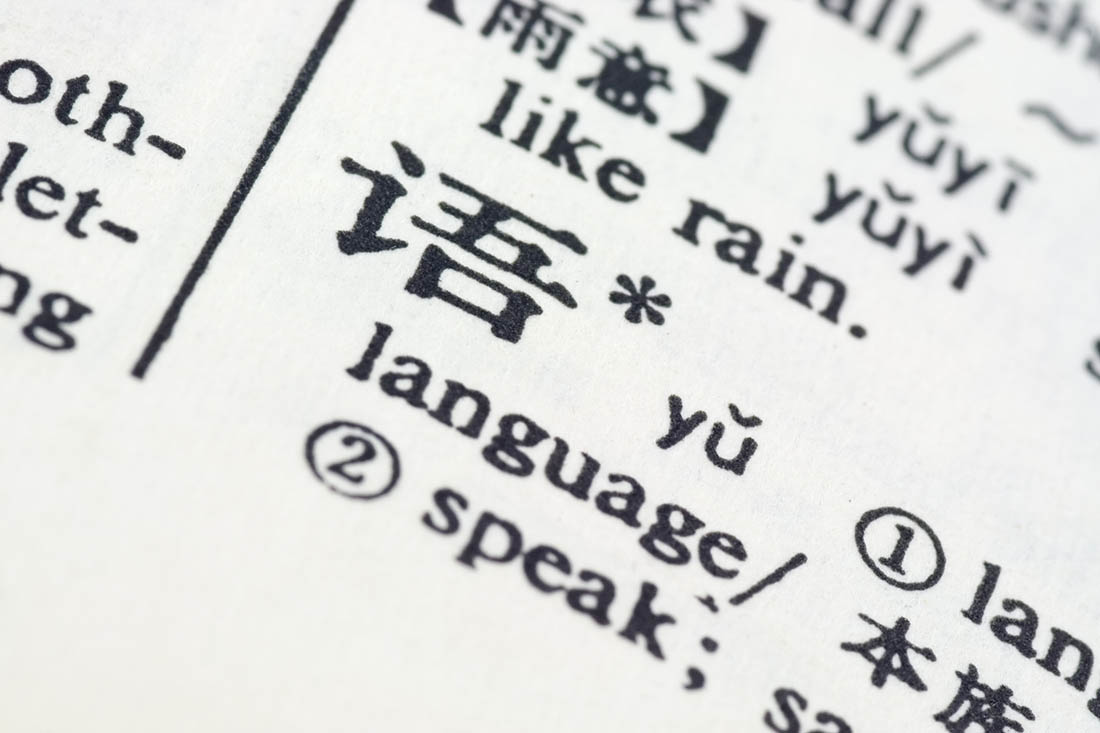Immigrants from Taiwan settled in Canada as early as the 1960s. Subsequent immigration cohorts from Taiwan followed in the 1980s and 1990s. Before the 1980s, most immigrants from Taiwan made Ontario their home, choosing to reside in Toronto. That shifted after 1980 when Vancouver became home to the largest Taiwanese community in Canada. According to the 2021 Canadian census, an estimated 65,000 people born in Taiwan live in Canada, representing 0.2 per cent of the population. Around 64,000 people report having Taiwanese heritage in Canada.

Taiwan
Taiwan is a self-governing democratic island nation southeast of China with an estimated 23 million residents. Although there are languages unique to the Indigenous tribes in Taiwan, Mandarin is the primary language spoken along with regional dialects like Hakka and Min Nan. (See also Chinese Languages in Canada.)
Religious traditions in Taiwan reflect a lot of diversity. While Buddhism and Taoism dominate, these are mostly mixed with elements of Confucianism and a variety of folk traditions. Christianity is practiced by less than 10 per cent of the population.
Migration History
Taiwan’s statehood has been a geopolitical point of contention since the end of the Second World War when Taiwan was ceded back to China following Japan’s defeat. In China in 1949, Mao Zedong claimed victory over Chiang Kai-shek’s nationalist party, the Kuomintang (KMT), which was backed by the United States. Mao founded the People’s Republic of China and ushered in an era of communism modelled after the Soviet Union. Chiang Kai-shek fled to Taiwan and initiated martial law, placing the Island under the KMT’s authoritarian regime. (See also Canada-China Relations.)
As early as the 1960s, Taiwanese people started trickling into Canada. Many of them arrived as students seeking higher education and decided to stay. They were few in number because, up to 1967, Canada enforced a race-based immigration system that discriminated against non-white immigrants. In 1967, a points system was introduced based mainly on skills, education, language ability and family connections. (See Immigration Policy in Canada.)
In Canada, some early Taiwanese immigrants supported democratic movements back home in Taiwan. They denounced political persecution from the KMT’s authoritarian government in English media, and participated in protests opposing one-party rule in Taiwan.
Notably, elders of the Taiwanese Canadian community recounted their experiences as overseas activists in the 1970s during an event held by TAIWANfest in 2021. One of those activists was Dr. Charles Yang, born in 1932, who landed in Kingston, Ontario in 1964 and later worked as a physician in Richmond, British Columbia. Yang, like many others who took part in supporting Taiwan’s democratic movement from Canada, was blacklisted by the KMT government for his participation in social and political activities in Canada. He was prohibited from returning to Taiwan for many years.
In the late 1980s, immigration under Canada’s Business Immigration Program — reserved for those with money to invest or build businesses as entrepreneurs ― was enthusiastically embraced by Taiwanese people. A combination of factors contributed to this surge, but most notable were Taiwan’s economic prosperity and its political liberalization after the end of martial law in 1987. Many Taiwanese immigrants also cited better quality of life and education for their children as reasons for their relocation to Canada.
Moreover, Canada is seen as a peaceful country for many in the Taiwanese community to resettle, with common values such as freedom, democracy, human rights and respect for the rule of law. As geopolitical tensions rose between Taiwan and China in the 1980s and 1990s, Canada became a gateway to those seeking political stability.
Arts and Culture
Taiwanese Canadian identity continually evolves in Canada. Even as recent as the early 2000s, it was common for Taiwanese Canadians to be viewed as part of the Chinese diaspora. But as the island’s democracy matured in the 21st century, Taiwanese Canadians began to be seen as a distinct community.
The recognition of Taiwanese Canadians as a distinct community has been amplified through initiatives that educate and promote Taiwanese culture. These initiatives celebrate the cultural hallmarks and cuisine that Taiwanese Canadians have helped popularize, such as bubble tea, beef noodles and fried rice. Along with Mandarin pop music, the community organizes lively night markets where the warmth and hospitality of its people are on display.
Since 2004, the Asian Canadian Special Events Association (ACSEA) has held annual festivals and events like TAIWANfest in Vancouver and Toronto. ACSEA has worked to serve as a platform for artists, writers and historians of the Taiwanese diaspora in Canada, to entertain and educate the public. The festival often highlights the shared values bridging Canadian and Taiwanese cultures, such as an appreciation for diversity and inclusivity.
Business & Politics
From arts and culture to politics and business, Taiwanese Canadians continue to influence Canada from all walks of life.
For instance, Taiwanese Canadian entrepreneur Cindy Lee transformed the grocery shopping market in Canada by founding the popular T&T Supermarket in 1993. The grocery chain offered East Asian Canadians the ability to shop for food items common in Asian cooking, all under the same roof. After Cindy Lee retired in 2014, the chain came under the leadership of her daughter Tina Lee. The chain continues to expand in Eastern Canada and the United States.
Politically, Taiwanese Canadians are also making their mark. Chungsen Leung was the first Taiwanese Canadian politician elected to the House of Commons. He was the Conservative member of parliament for Willowdale, ON from 2011 to 2015.
In 2017, Anne Kang, Bowinn Ma and Katrina Chen made history as the first politicians of Taiwanese heritage to be elected to the Legislative Assembly of British Columbia, all with the New Democratic Party.
Taiwan-Canada Relations
Canada does not have a formal diplomatic relationship with Taiwan. Its relationship is governed by the One China Policy which recognizes the People’s Republic of China as the legitimate government of China. However, Canada does not endorse nor challenge China’s position on Taiwan, which views the island as part of China. (See Canada-China Relations.)
This position has allowed Canada the flexibility to maintain trade, investments and relational ties with Taiwan. According to Global Affairs Canada, trade between Taiwan and Canada was worth $12 billion in 2023. Taiwan is Canada’s 15th largest trading partner. Canada’s priority sectors in Taiwan include aerospace, information and communications technology, agri-food and seafood products, biotechnology, clean technologies and energy.

 Share on Facebook
Share on Facebook Share on X
Share on X Share by Email
Share by Email Share on Google Classroom
Share on Google Classroom




